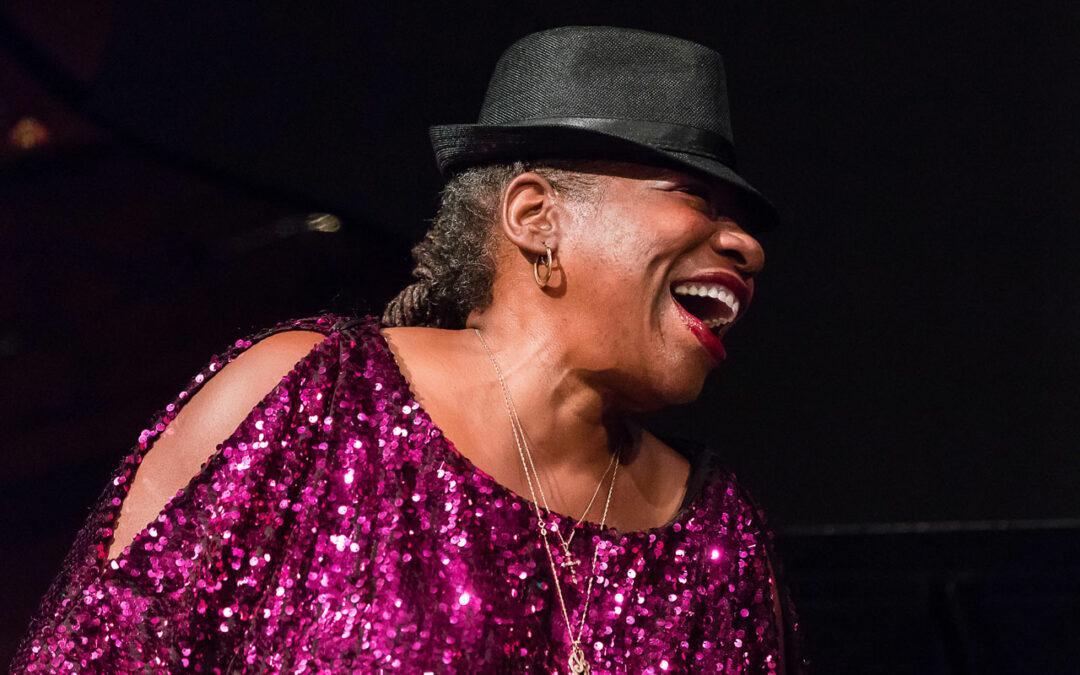Elnah Jordan photo by Lisa Hagen Glynn
September 6-8
Various Locations
$10 Suggested Donation
BY AKSHAJ TUREBYLU
You had to be there. And not just there but then. Being a jazz aficionado in the second century of the art form means facing the harsh reality that many of those transient spaces where the tradition was born are no longer open for business.
And yet! Even if we cannot see Miss Lillian Smith’s Jazz Band and Oscar William Holden swing with the crowd, we can visit the consecrated ground on which they played. And that’s exactly what Seattle’s Jackson Street Jazz Walk promises.
Since 2013, the annual event has hosted free concerts and events highlighting the area where nearly fifty jazz clubs once served the Black population of Seattle.
While a history of redlining created the locality of Jackson Street, the music has defined it. Performance became an act of solidarity, away from the prying eyes of city censors, transforming the site into a place of rejuvenation. To remember both the struggle and the joy of Jackson Street is part of the process.
Since becoming Executive Producer of the Jazz Walk in 2017, Eugenie Jones has centered the event on three main thematic pillars: Music; Community; and Legacy.
As for Music: Over three days of performances including, Jazz Caliente Con Corazón, the Jazz Walk’s Red Dress Reception and official kick-off on Friday at the Langston Hughes Performing Arts Center (tickets $25, VIP $35); twenty-odd bands performing across ten community stages at Jackson Street on Saturday including the jazz rock project The Daimonics, Blues songstress Elnah Jordan, and more; and a “Seattle Sings” closing performance at Fountainhead Gallery in Queen Anne on Sunday, featuring the Sugartime Trio and the award-winning Gail Pettis (tickets $35).
As for Community: Over the last few years, Jones has folded in local, charitable organizations — an essential component of the Walk’s mission. This year’s benefactor is Byrd Barr Place, a Central District non-profit providing essential services, helping Seattle neighbors through direct services, community action and advocacy for the past 60 years. There are also major community partners involved with the Jazz Walk, such as Earshot Jazz, KNKX, and Vulcan Real Estate among others. It’s a meeting of many major Seattle organizations.
As for Legacy: Jones has dedicated a great deal of time and energy over seven years to making the Jazz Walk possible. She remarks: “It’s important that current artists see themselves historically in the faces of the people that came before them.” The event also has a political dimension for her: “If we, as African-Americans, don’t speak up and tell that history, no one else is going to.”
Legacy is not only a commitment to the past. It’s a commitment to the future. Even if we cannot partake in partying with the early titans of jazz ourselves, we can honor and continue the party in our own way. A party that knows it stands on the shoulders of giants. In recognizing that legacy, we empower the future of jazz performance in the face of many of the economic, social, or other impediments that attempt to block the voices and horns of the dispossessed. Looking to the past, we press on.
To learn more about the artists, purchase tickets, or view the schedule and map visit jacksonstreetjazz.org.





